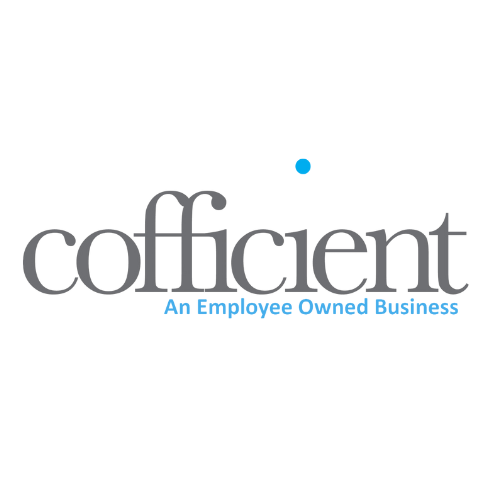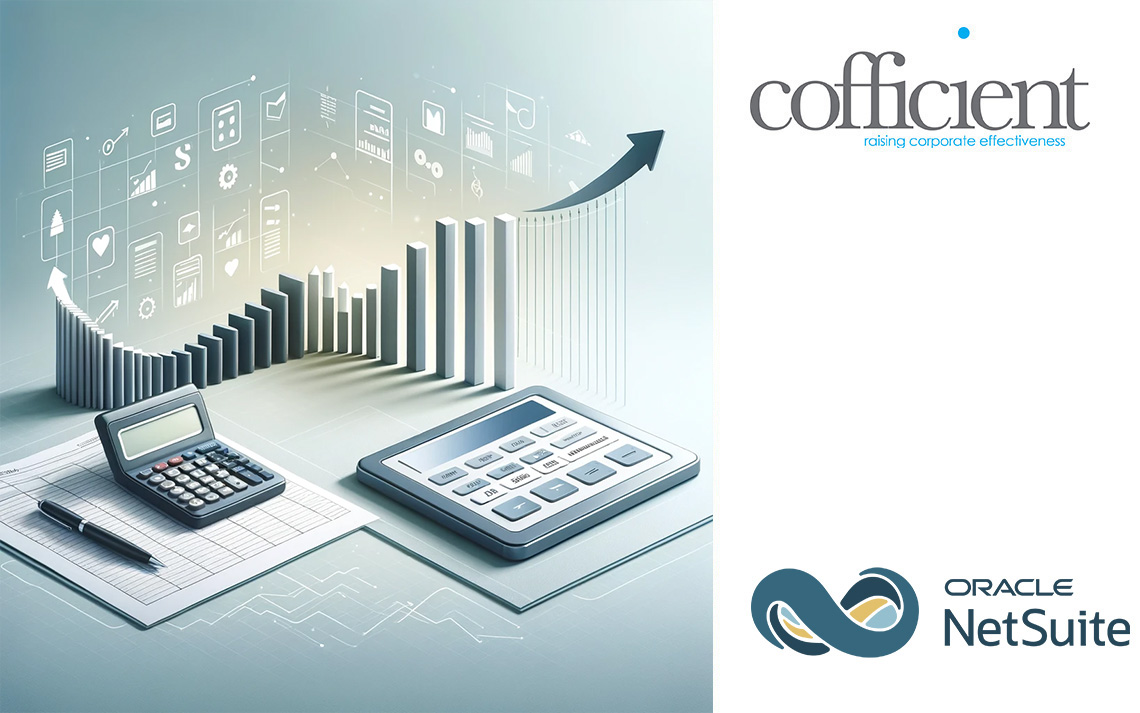
Summing Up ERP Trends for 2023: A Year in Review
As we approach the end of 2023, it’s an ideal time to reflect on the dynamic landscape of Enterprise Resource Planning (ERP) and its evolving trends. Cofficient, with over a decade of expertise in providing NetSuite solutions, has been at the forefront of these transformations. As official NetSuite partners, we have a unique perspective to observe and engage with these changes. This blog post aims to summarise the key ERP trends of the year and explore their impact on the business world.
- Cloud ERP: The Backbone of Modern Business
The move towards Cloud ERP has been more than just a trend; it’s become the backbone of modern business operations. Cloud-based solutions’ agility, scalability, and cost-effectiveness have proven indispensable, especially in a year marked by global economic fluctuations.
-
- Seamless Integration: Cloud ERP systems have facilitated smoother integrations with other business systems, enhancing operational efficiency.
- Remote Accessibility: The rise of remote work models has been well-supported by cloud ERP, ensuring business continuity across diverse locations.
- Mobile ERP: Accessibility on the Go
In 2023, Mobile ERP became a necessary tool rather than a luxury. With the workforce becoming increasingly mobile, the need to access ERP systems on the go has skyrocketed.
-
- Real-time Data Access: Mobile ERP has enabled real-time access to data, ensuring decision-makers are always informed.
- Improved Collaboration: Enhanced collaboration tools within mobile ERP apps have facilitated better teamwork and productivity.
- IoT and ERP: A Symbiotic Relationship
The year 2023 witnessed a significant breakthrough in business technology by integrating the Internet of Things (IoT) and ERP systems. Real-time data insights transformed how businesses operate and make informed decisions efficiently.
-
- Enhanced Data Collection: IoT devices have provided a wealth of data, allowing businesses to optimise operations and customer experiences.
- Proactive Maintenance: In sectors like manufacturing, the combination of IoT and ERP has enabled proactive maintenance, reducing downtime and costs.
- Security: A Paramount Concern
The amplified focus on cybersecurity within ERP systems has been a defining trend of the year.
-
- Robust Security Measures: As ERP systems house critical business data, strong security measures have been implemented to protect against breaches.
- Continuous Monitoring: Continuous monitoring and regular updates have become standard practices to ensure the integrity of ERP systems.
- Advancements in ERP with the use of AI
In 2023, the most prominent and widely adopted trend was the integration of Artificial Intelligence (AI) with ERP systems. This advancement brought exceptional efficiency and effectiveness to businesses across various sectors, making it a crucial investment for any organisation looking to stay ahead of the curve and fundamentally transform how businesses approach their operations and strategic planning.
-
- Automated Processes: AI has played a pivotal role in automating routine tasks, freeing human resources for more strategic activities.
- In-depth Data Analysis: AI algorithms processed and analysed vast datasets, providing comprehensive insights.
- Strategic Recommendations: These insights led AI to offer strategic recommendations, significantly enhancing the quality of decision-making.
- Crucial for Dynamic Markets: In fast-paced and dynamic market environments, the speed and accuracy of AI-driven decisions were invaluable, impacting business success.
- Predictive Capabilities: AI’s predictive capabilities in ERP systems enabled businesses to foresee potential issues before they manifested.
- Cost-effective Solutions: By addressing problems proactively, AI in ERP systems helped reduce potential costs associated with unplanned downtimes and emergencies.
- Automating Complex Tasks: AI’s scope in ERP extended beyond automating routine tasks to encompass more complex operations, enhancing process efficiency.
- Continuous Process Improvement: AI continually refined these processes, ensuring they became more streamlined and efficient.
- Enhancing Operational Productivity: The result was a significant boost in operational productivity, with a leaner, more effective workflow.
- Strategic Task Allocation: AI-driven automation freed human resources from mundane tasks, allowing them to engage in more strategic and creative activities.
- Historical Data Analysis: AI analysed historical data to forecast future trends, providing a solid foundation for strategy development.
- Competitive Edge: This capability offered businesses a competitive advantage by enabling them to anticipate and prepare for future market dynamics.
- Understanding Customer Behaviour: AI-driven predictive analytics deepened the understanding of customer behaviours and preferences.
- Enhancing Customer Satisfaction: Customised experiences increased customer satisfaction and fostered loyalty and long-term customer relationships.
- Resource Optimisation: Efficient allocation of human resources led to optimised utilisation of organisational skills and talent.
Looking Ahead: What’s Next for ERP in 2024?
As we bid farewell to a year of significant advancements and shifts in the ERP landscape, it’s clear that these trends have set the stage for an even more interconnected and intelligent future.
Integrating advanced technologies like AI, IoT, and predictive analytics with ERP systems enhances operational efficiency and paves the way for more strategic and data-driven decision-making processes.
Stay tuned as we explore the anticipated trends for 2024 in our next blog, where we’ll analyse the future course of ERP and how businesses can best prepare for the upcoming changes.
At Cofficient, we remain committed to guiding and supporting our clients through these evolving landscapes, ensuring they are well-equipped to leverage the full potential of NetSuite ERP solutions. Remember, the world of ERP is constantly changing, and staying informed is critical to maintaining a competitive edge. Join us as we continue to explore and navigate the exciting developments in ERP for the year 2024.



